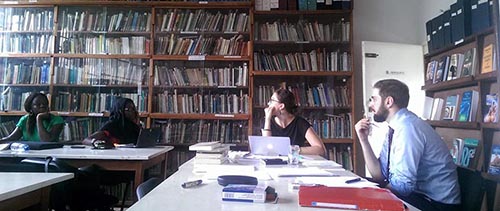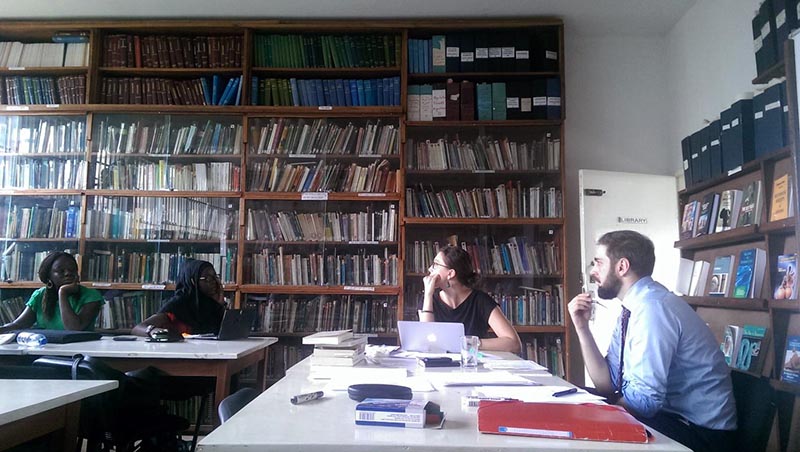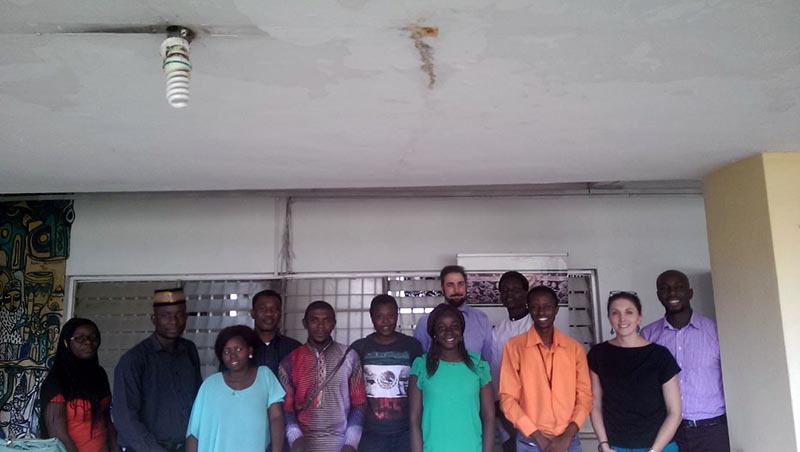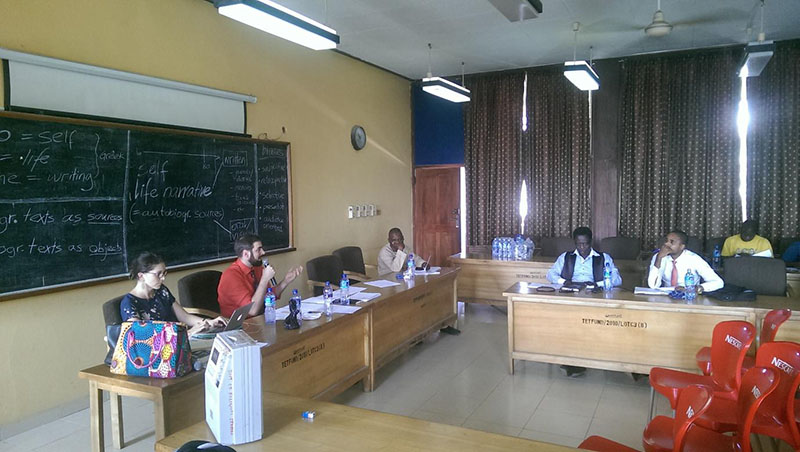IFRA training workshop: "Reading Autobiographical Sources: Potentials and Challenges in Human and Social Sciences" By Dr. Roberto Zaugg

By Dr. Roberto Zaugg (University of Lausanne)
7th of November 2017 (Ibadan)
8th of November 2017 (Ile-Ife)
This week, IFRA had the pleasure to host Dr. Roberto Zaugg, Ambizione fellow of the Swiss National Science Foundation at the University of Lausanne in Switzerland. After completing his doctorate on the Kingdom of Naples in 2008, Dr. Zaugg recently extended his interests to autobiographical writings as well as to the slave trade and the cultural history of colonialism.
Dr. Roberto Zaugg supervised a seminar entitled “Reading Autobiographical Sources: Potentials and Challenges in Human and Social Sciences”, both at the Institute of African Studies of the University of Ibadan and then at the Faculty of Arts of the Obafemi Awolowo University in Ile-Ife.
Dr. Zaugg started the seminar by defining a number of relevant concepts. Such concepts included synonymous expressions of “self-life narrative” and “autobiographical sources”, namely, the writing of one’s own life. Autobiographical sources can be written and materialise in pieces of work like journals, diaries, memoires, travel accounts… They can also be oral, or even visual, as self-portraits for example. Contemporary technologies and the increased use of social networks and media have boosted the spread of autobiographical works, insofar as anyone with a smartphone and access to the internet can continuously document his/her own life by sharing photographs or verbal notes describing and analysing personal experiences. Dr. Zaugg underlined a crucial distinction between two usages of autobiographical works by historians. First, they can be used as sources on specific places and periods of time, providing factual elements about a culture, an economy, a country, a group of people, etc. Second, they can be used as objects of study. For example, historians can carry out a semantic analysis of the work in the framework of a philological project.
Dr. Zaugg then identified a series of biases which influence autobiographical texts. Authors are giving their viewpoints on their own lives, meaning they are very subjective. Additionally, they retrospectively reflect upon past events, that sometimes took place a long time ago, which can skew their accounts. Furthermore, autobiographies offer solely a selection of personal lives narratives: authors cannot render comprehensively their own lives and must select what they deem significant, sometimes eluding, purposely or not, less glorious or impressive elements. Their own perception is also swayed by their state of mind at the time of writing: their present feelings may rework how they comprehend and depict events that occurred to them. Finally, autobiographical works are usually intended for particular audiences: whether the author writes for immediate publication or not, he/she usually wishes to consider the readership in his description and analysis of events.
In the second part of both seminars, Dr. Zaugg proposed to focus on the readings that were assigned to the participants, who were split into groups to discuss the texts. The first piece was the “spiritual autobiography” by John Bunyan (1628-1688) of his life as the “chief of sinners”. The next piece was an excerpt from the Diary of Antera Duke, an Eighteen-Century African Slave Trader. The last one was the Journal of my Life by Jacques-Louis Ménétra.
Participants exchanged extensively on the key concepts of autobiographical writings, reflecting upon the boundaries between fictions and autobiographies. Nigeria was often picked up as an interesting example. Both seminars ended with expressions of deep satisfaction by the participants and the convenor. The session at the Obafemi Awolowo University in Ile-Ife additionally encouraged us to organise more events in this beautiful university in the near future.

Dr. Zaugg and Dr. Apard listening to workshop participants comments during the Ibadan session

Some of the University of Ibadan workshop participants at the end of the session

Dr. Zaugg speaking at the workshop in Obafemi Awolowo University in Ile-Ife

A participant of the workshop in Obafemi Awolowo University in Ile-Ife.

Social Media
Mailing List